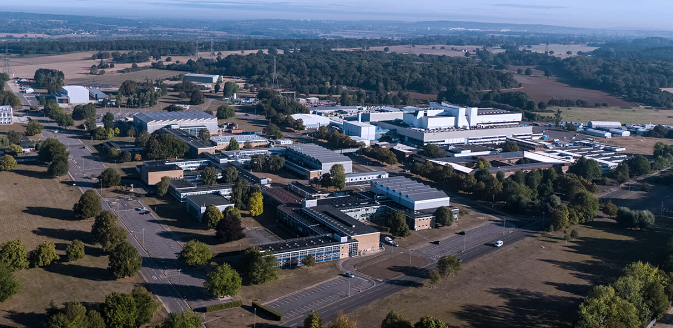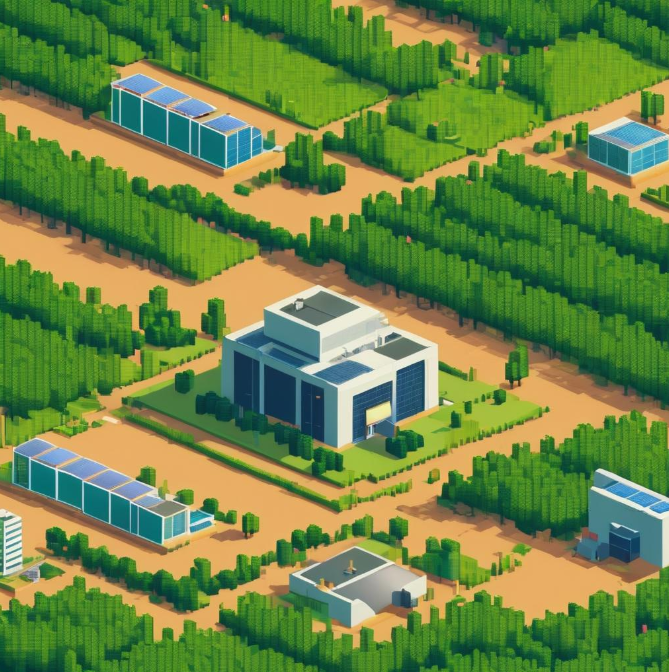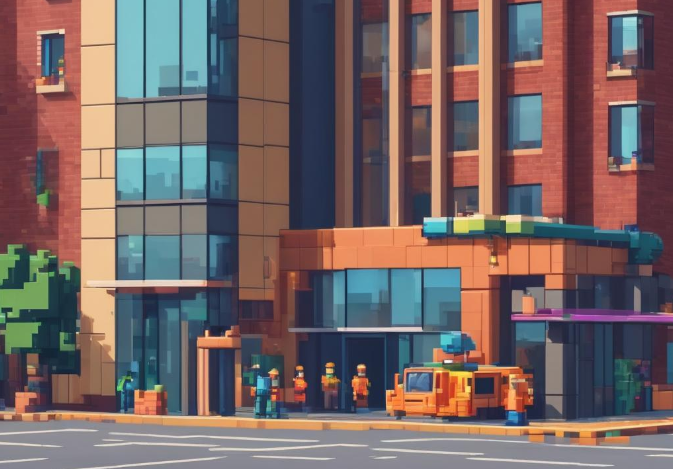In a groundbreaking leap, the industrial metaverse is reshaping the landscape of engineering, and according to Rob Akers, director of computing programs at the UK Atomic Energy Authority (UKAEA), this transformative technology is not just a vision for the future but a current reality. The convergence of advanced technologies unleashes unprecedented potential, ushering in a cleaner and more sustainable future.
Breaking the Hype: Metaverse in Action
While the term “metaverse” may evoke visions of virtual reality landscapes and futuristic escapades, it’s essential to recognize that it is not just a fad. Rob Akers’ work at the UKAEA illustrates how the industrial metaverse is actively utilized to propel engineering into realms of efficiency and innovation that were previously unimaginable.

The metaverse’s impact extends far beyond the virtual realm, drawing strength from the convergence of various cutting-edge technologies. Digital twin technology, artificial intelligence (AI), machine learning, the Internet of Things, blockchain innovation, and cloud and edge computing are merging to create a synergistic force that can revolutionize how we approach engineering challenges.
A Cleaner Future: Metaverse’s Role in Sustainability

Rob Akers emphasizes that the transformative power of the metaverse is not just about innovation for the sake of it but plays a pivotal role in achieving a cleaner future. As industries grapple with the imperative to reduce their environmental footprint, the metaverse becomes a tool to enhance efficiency, optimize processes, and minimize waste.
At the heart of the metaverse revolution lies the concept of digital twins. These virtual replicas of physical objects or processes enable engineers to simulate and analyze real-world scenarios in a virtual environment. This capability accelerates the design and testing phase, allowing rapid iterations and improvements without physical prototypes.
AI and Machine Learning: Augmenting Engineering Intelligence
The metaverse leverages the power of artificial intelligence and machine learning to enhance the cognitive abilities of engineers. By analyzing vast datasets and identifying patterns, AI-driven systems can provide invaluable insights, optimize decision-making processes, and predict potential issues before they arise. This proactive approach saves time and contributes to more sustainable and resilient engineering solutions.
IoT and Connectivity: Real-time Monitoring and Control
Integrating the Internet of Things within the metaverse framework ensures real-time monitoring and control of engineering systems. This connectivity allows engineers to gather data, detect anomalies, and make informed decisions promptly. The result is a more responsive and adaptable engineering ecosystem capable of addressing challenges dynamically.
Discover how the metaverse helps in other sectors!
- Revolutionizing Football in the Metaverse
- Seventh-day Adventist Church Explores Metaverse for Worship
Blockchain: Securing the Future of Engineering
In the metaverse, blockchain technology plays a significant role in the security and integrity of data. As engineering processes become increasingly digitized, the immutability and transparency of blockchain provide a robust foundation for managing information and ensuring the reliability of critical systems.
Conclusion: Paving the Way for Tomorrow’s Engineering
Rob Akers’ work at the UKAEA serves as a testament to the tangible impact of the metaverse on engineering. The convergence of digital twin technology, AI, IoT, and other advanced tools propels the industry toward a more sustainable and efficient future. As the metaverse evolves, its transformative influence on engineering practices will become even more pronounced, shaping a world where innovation and sustainability go hand in hand.

